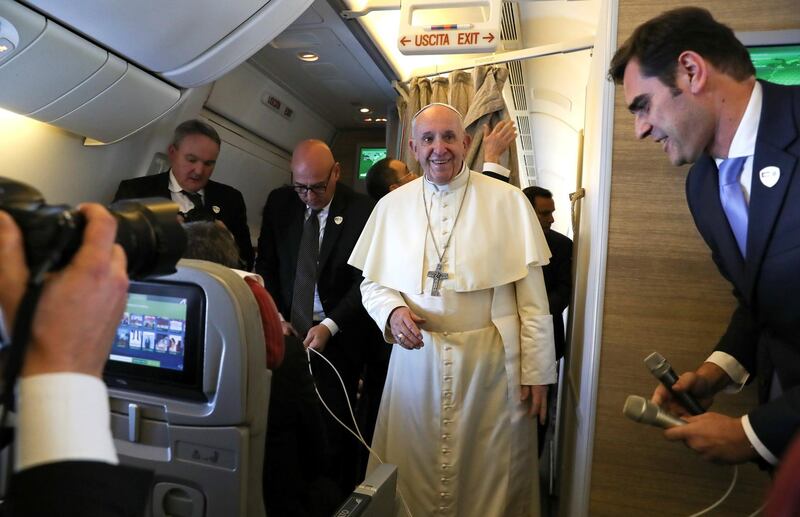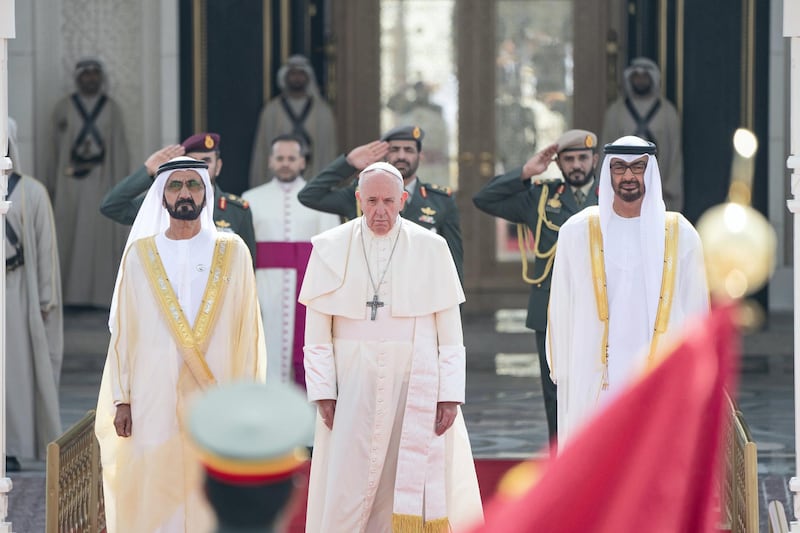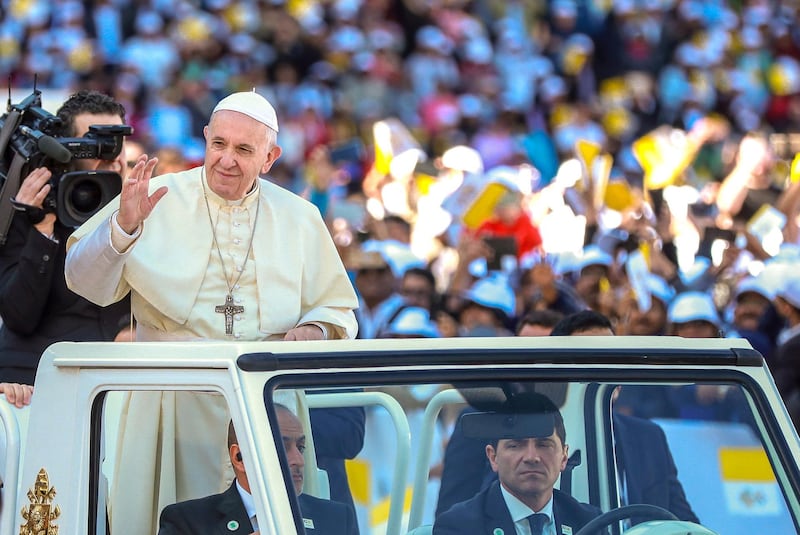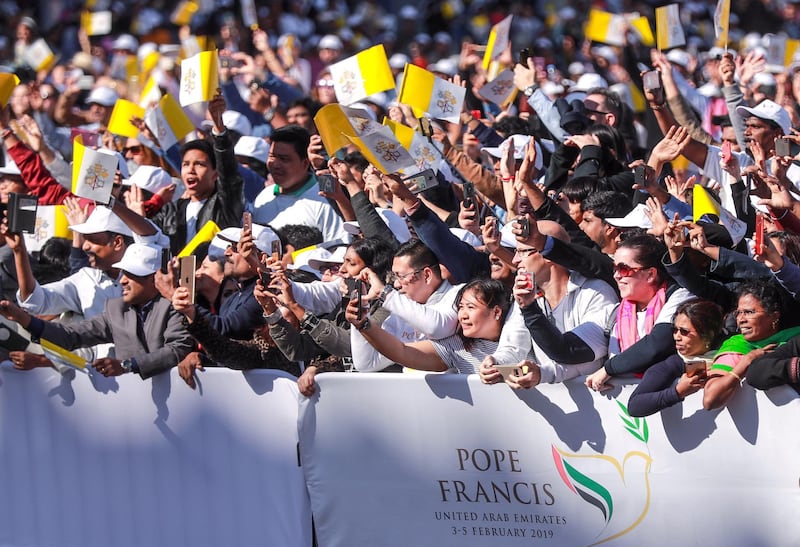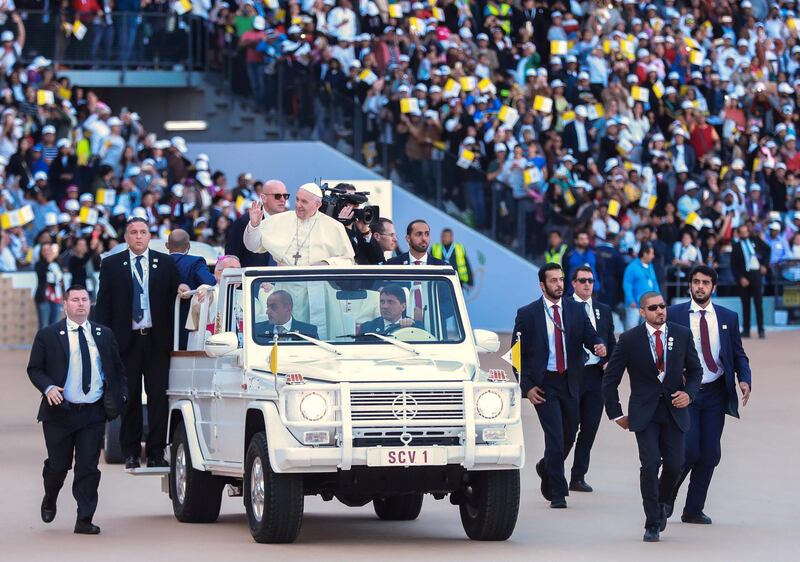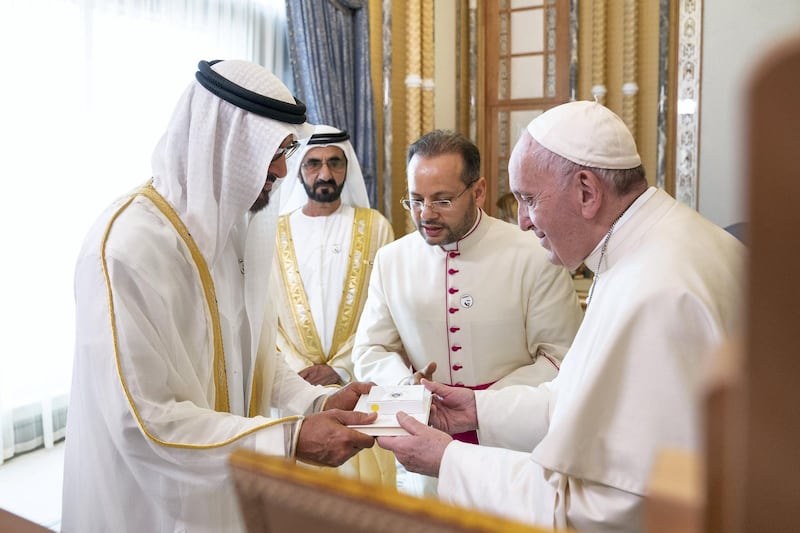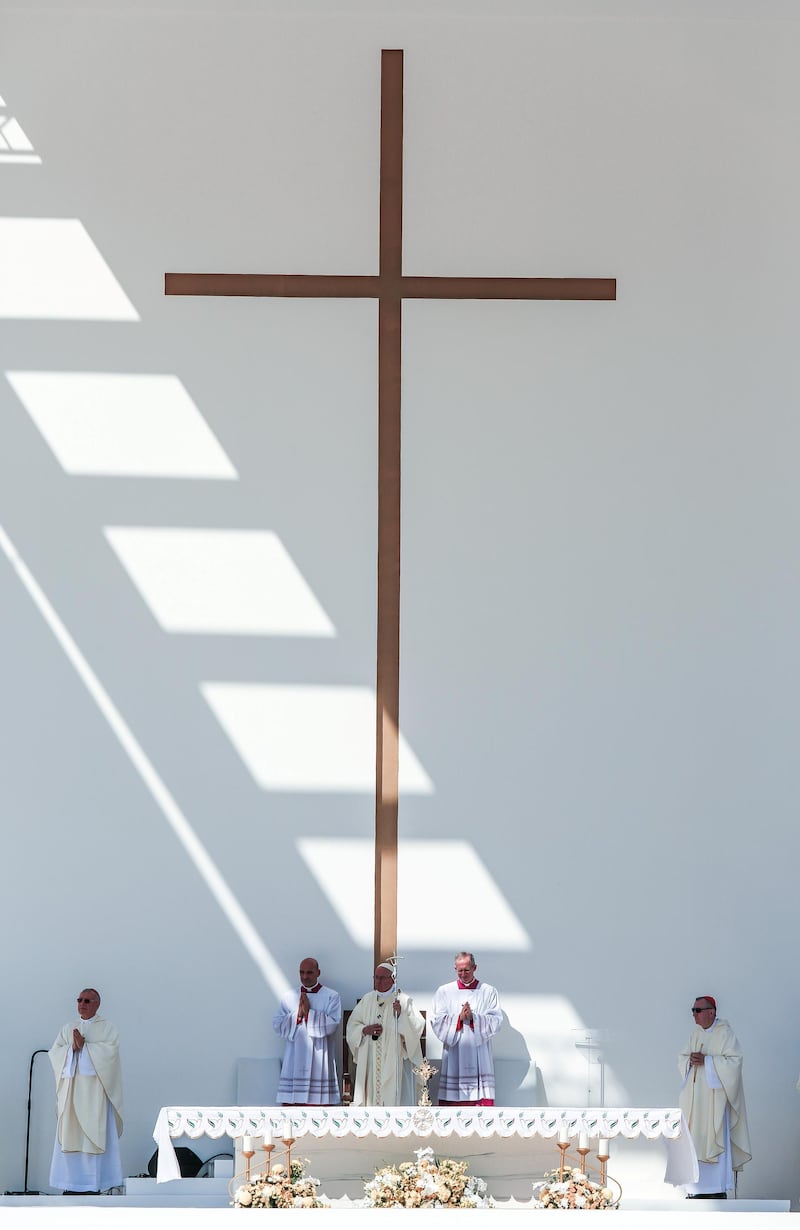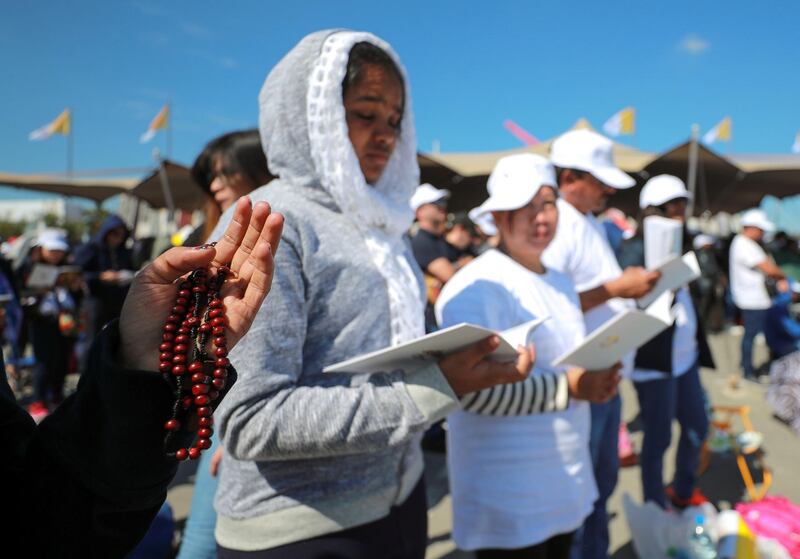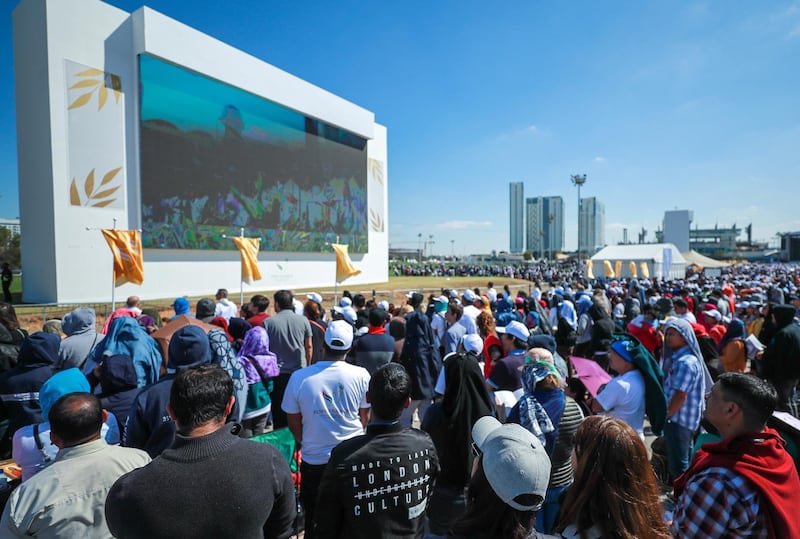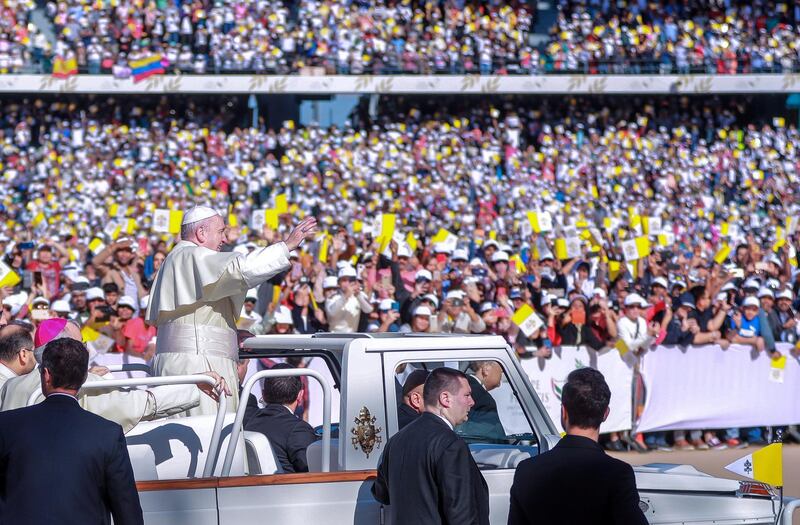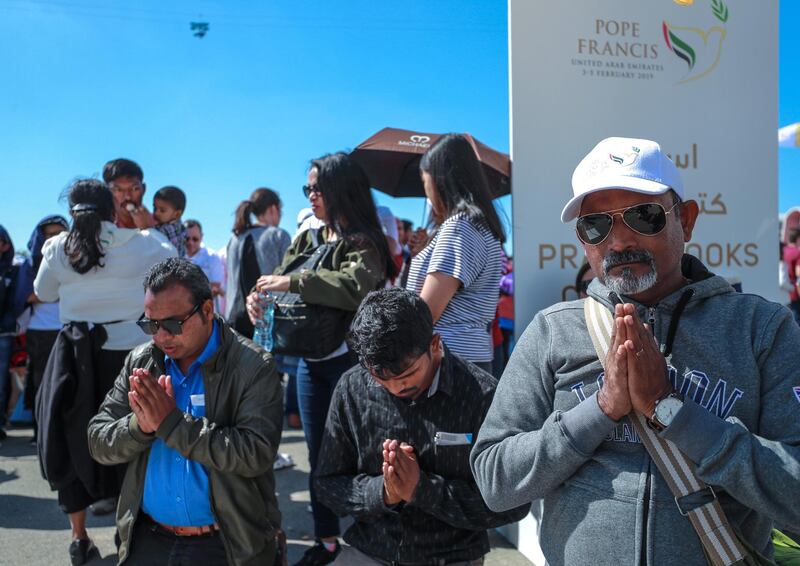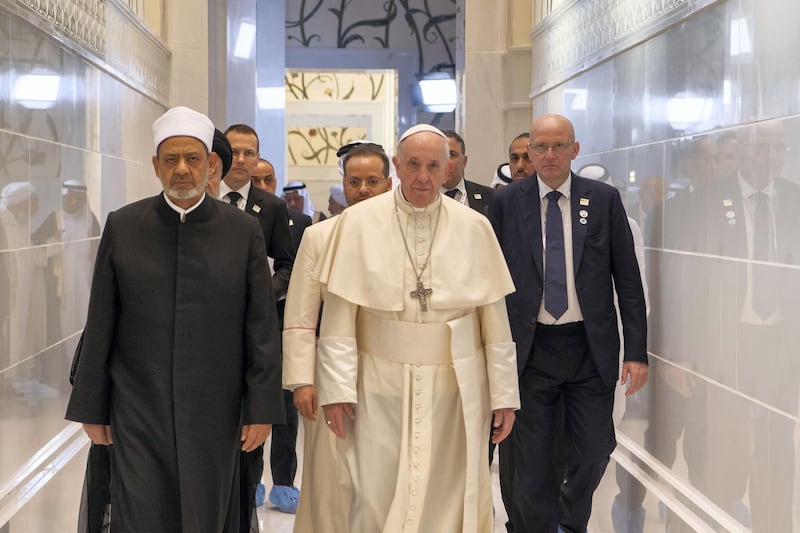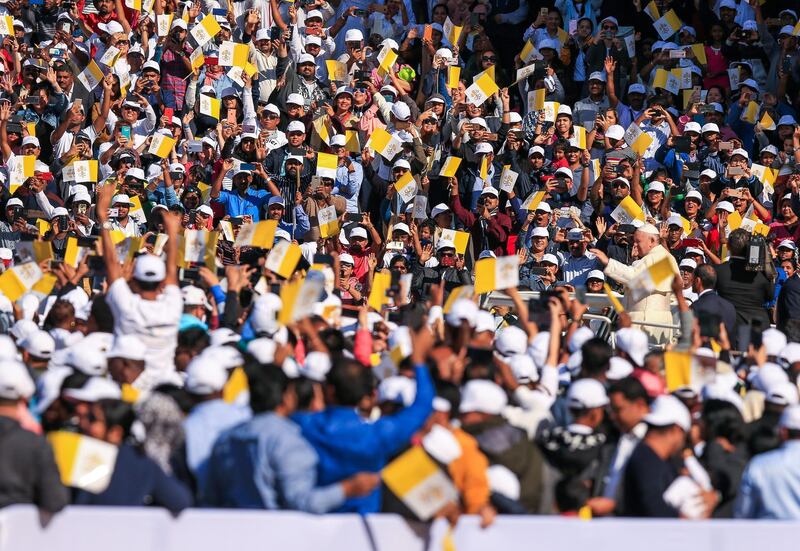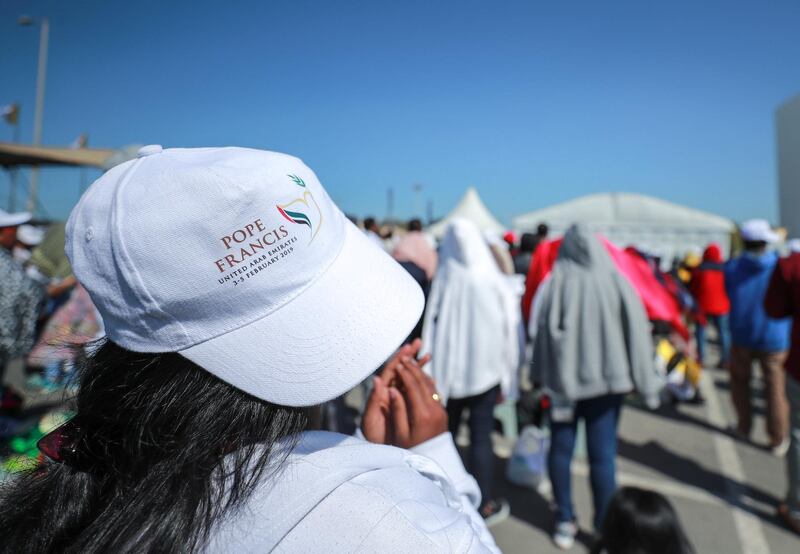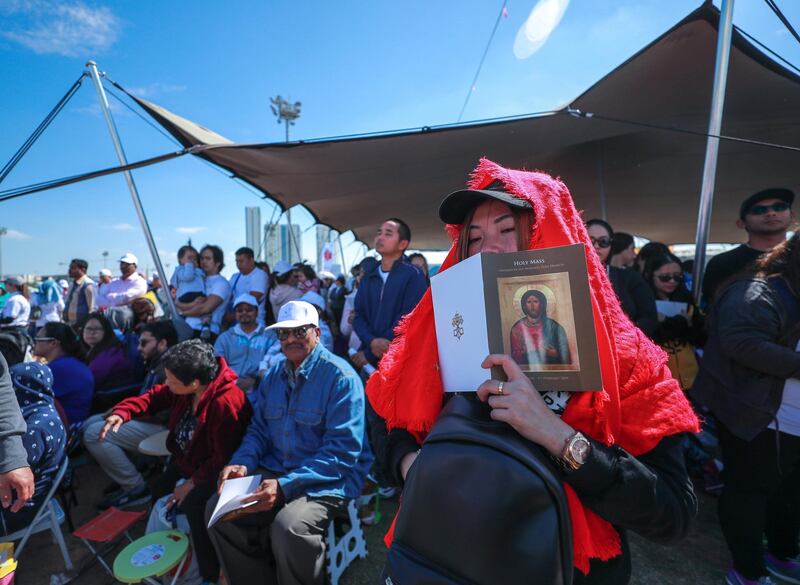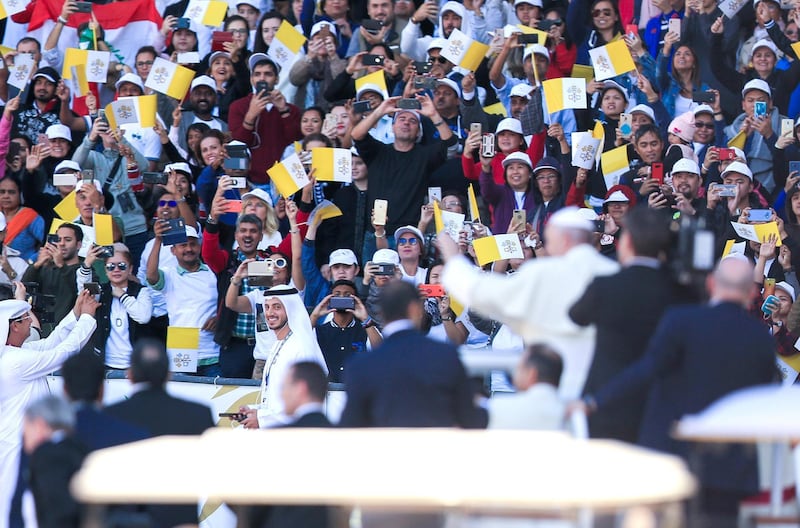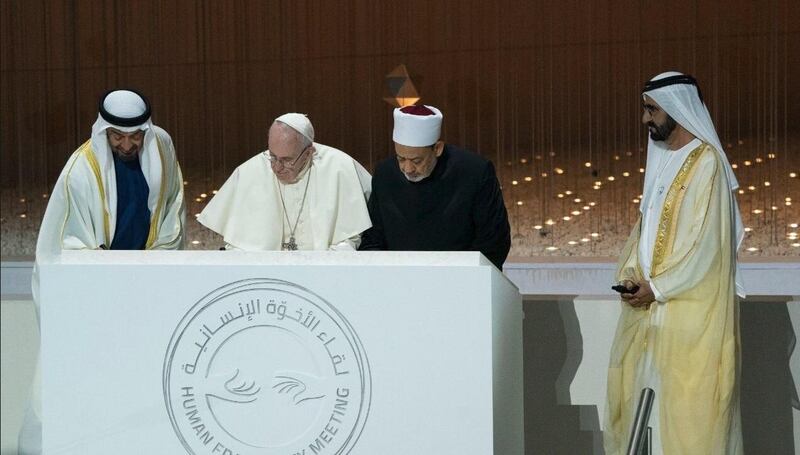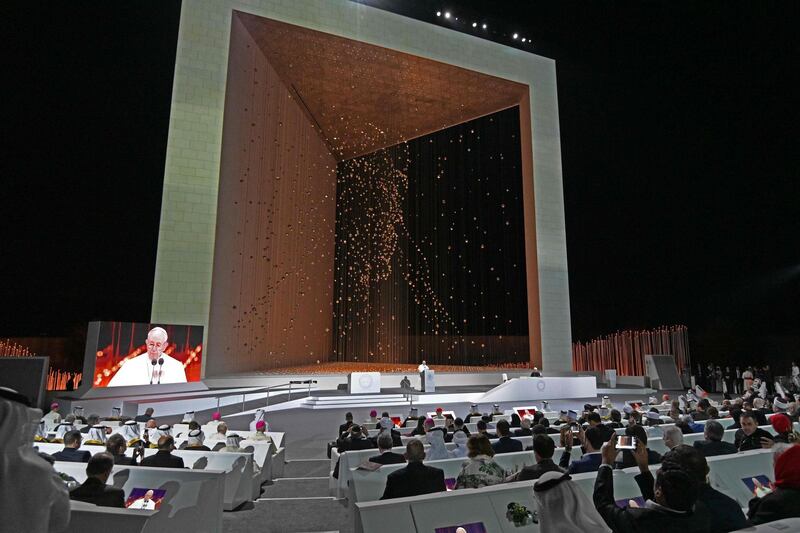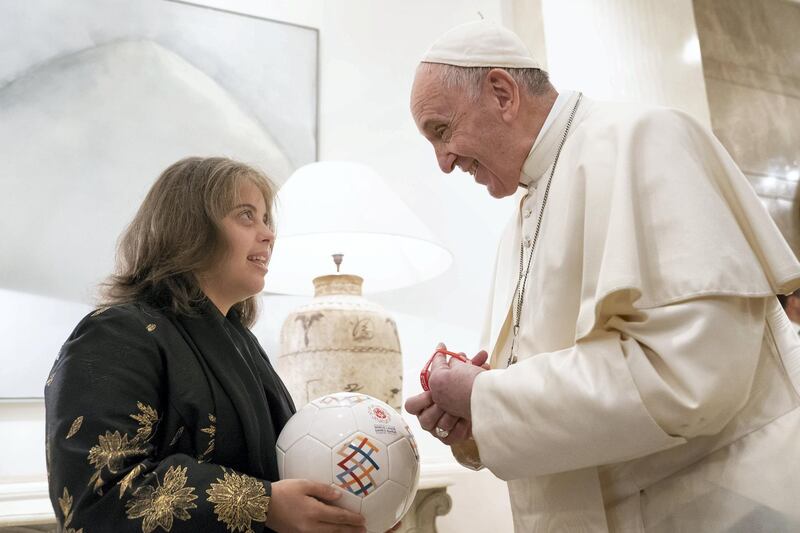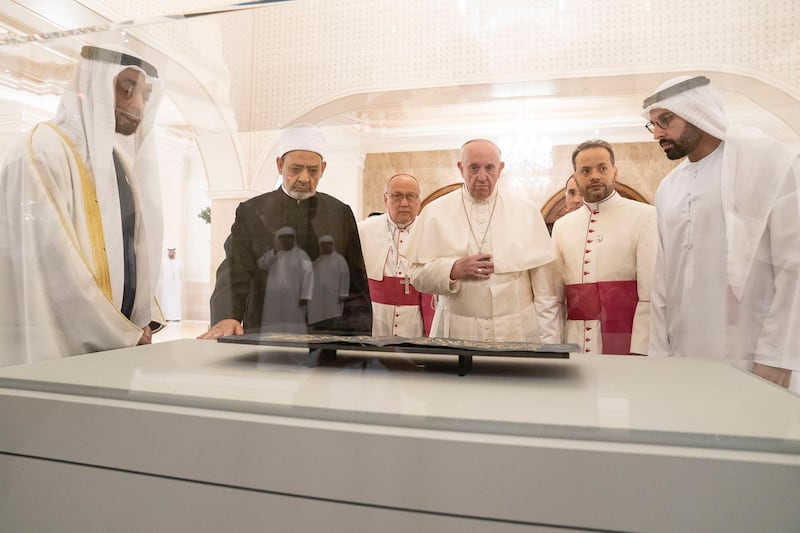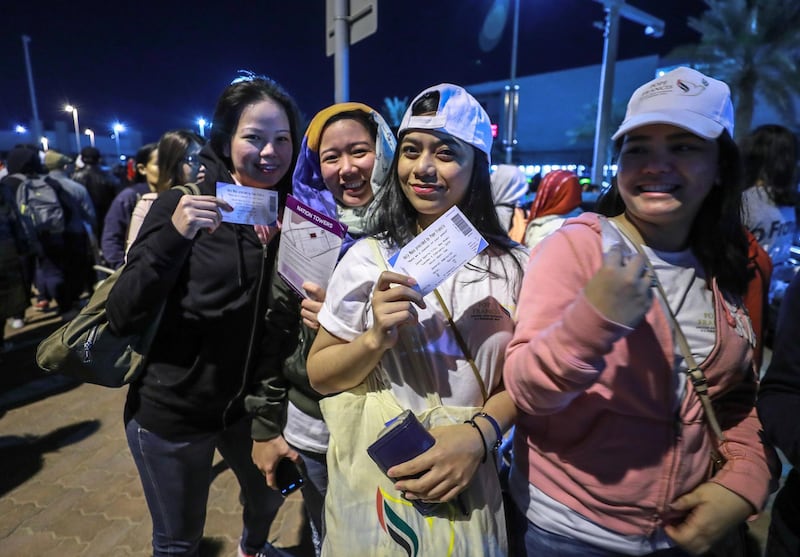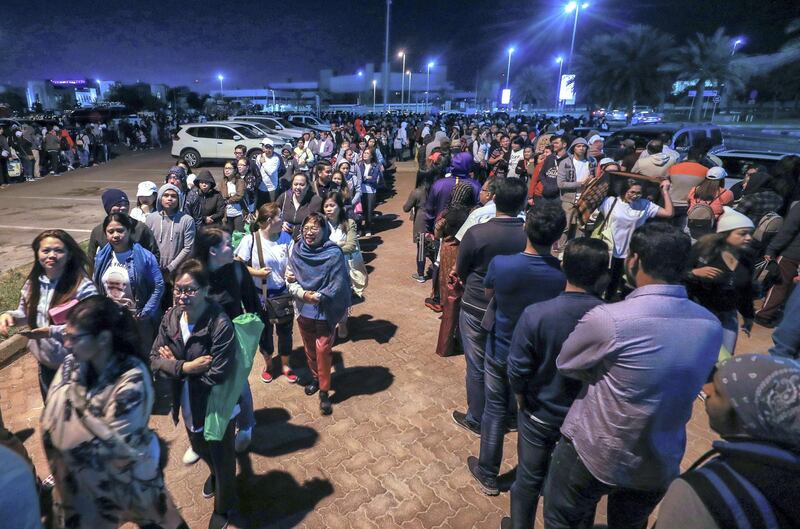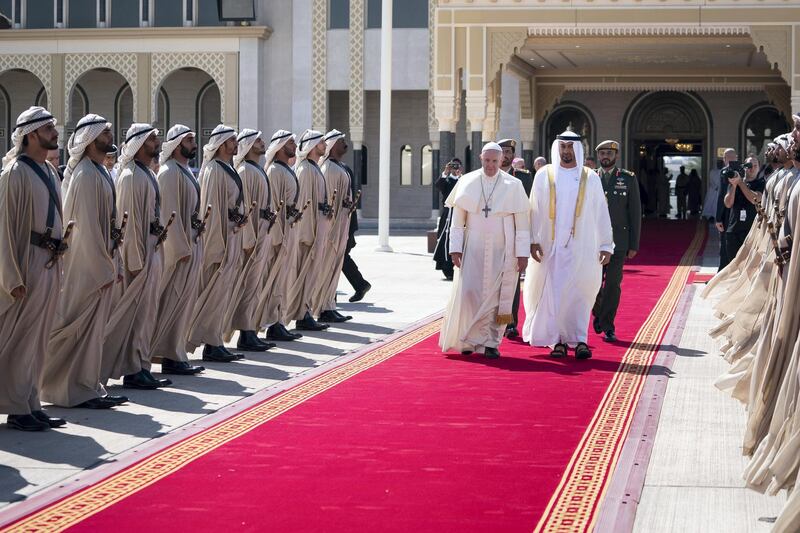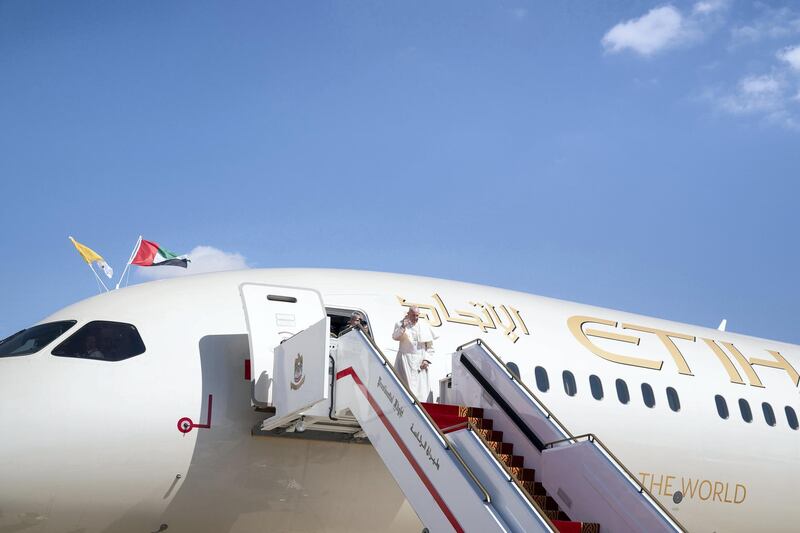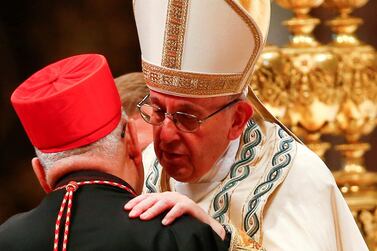To understand what is at stake in the Pope's first mission to Iraq this week , it is worth looking back to a moment from his 2019 visit to Abu Dhabi.
As Pope Francis entered the stadium in Zayed Sports City, a young girl spontaneously dashed towards him from the crowd, clutching something in her hand.
Lifted up by an Emirati official, she was able to present her handwritten note to a smiling pontiff in a moment that was joyous and tender.
Any repeat of the incident in Iraq will chill the blood of onlookers, with the expectation of a tragic ending. The very real threat of a terrorist attack is just one of the perils facing the Pope in Iraq.
Another is Covid-19. The country is experiencing a second surge of the disease to a record 4,000 cases a day. A two-week partial curfew was recently enforced, closing schools and most businesses, but also mosques and churches.
Despite this dual threat, considerations of personal safety will come second to the message of peace and reconciliation Pope Francis hopes to share when he arrives in Baghdad on the afternoon of March 5.
The Pope has long been determined to visit Iraq, an unfilled invitation that dates back to John Paul II and the regime of Saddam Hussein.
For Pope Francis, this is the next stage of a personal mission that began in Abu Dhabi two years ago with a series of powerful statements about religious reconciliation, made from a Middle East country that is a byword for tolerance in the region.
In Abu Dhabi, the pontiff shared a platform with Dr Ahmed Al Tayeb, Grand Imam of Al Azhar Al Sharif University and Chairman of the Muslim Council of Elders, signing together a Human Fraternity Document to advance a "culture of mutual respect” for all people.
The following month, the Pope travelled to Morocco, again with a well-received message of harmony, and a joint declaration that recognised Jerusalem as a holy place for Christians, Muslims and Jews.
In Iraq, though, he will meet the hard reality of religious intolerance and the scale of the hill to climb. Revered as the birthplace of numerous prophets, including Abraham and Daniel, and linked with the location of the Garden of Eden, the past decade has seen Christians fleeing in the hundreds of thousands.
A campaign of murder and intimidation by ISIS between 2013 and 2017 saw a once thriving Christian community estimated at around 1.5 million dwindle perhaps to fewer than 300,000, although exact numbers are hard to calculate.
Even today, Iraq remains a dangerous place, underlined by the rocket attack on a US airbase at Erbil on February 20 that killed a civilian contractor and wounded nine others. Erbil is one of the destinations for Pope Francis.
The attack was blamed on proxy militias loyal to Iran, but there are also fears of a comeback by ISIS, who claimed responsibility for two suicide bombers who killed 32 at a Baghdad market in January.
Vatican officials are sensitive to criticism of the decision to allow the Iraq visit to go ahead in these circumstances, recently highlighting a call from Cardinal Louis Raphael Sako, the Chaldean Catholic Patriarch of Baghdad for social media commentators to be “more positive and supportive of everything”.
Cardinal Sako has also tried to play down expectations of the visit, saying, in a statement issued via the Vatican, that Pope Francis “does not come to Iraq to solve all the problems”.
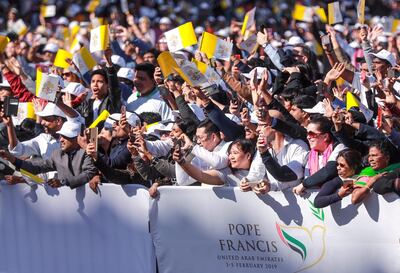
Rather, the Pope will “express his solidarity and stand with the Iraqis, and will carry messages of love, brotherhood, reconciliation, tolerance, peace, respect for life, diversity and pluralism”, the cardinal said.
Inevitably though, the Pope’s visit will be seen as part of a healing process. "I am the pastor of people who are suffering,” he said in an interview with the Catholic News Service last month.
"He is coming to be face to face, to show us he cares about us,” said Archbishop Bashar Warda, of Erbil.
In Iraq, he will have every opportunity to make good that promise. Today Christians make up only about one per cent of the population, although the lack of a census since 1997 makes it hard to be precise.
A majority are Chaldean Catholics, a branch of the Eastern Church which shares its liturgy with Rome.
The depredations of ISIS saw at least two thirds of the Christian population flee to safety, some to Kurdish-controlled areas of Iraq, but many others to Europe and the United States from where they will likely never return.
Pope Francis will begin his visit with an official welcome at the Presidential Palace followed by a meeting with Iraqi clergy.
Saturday, March 6, takes the pontiff to Najaf, a place of pilgrimage for Shiite Muslims, and a private meeting with Grand Ayatollah Ali Al Sistani, widely seen as a voice for moderation and reconciliation and a counterpoint to the angry rhetoric from Tehran.
Later he will fly to Nasiriyah, to take part in an interfaith prayer meeting at Ur, the ruins of an ancient city held to be the same place mentioned in the Book of Genesis as the birthplace of Abraham, or Ibrahim in Arabic
Bombings, murders and the wholesale destruction of holy sites and places of worship were the calling card of ISIS. To end his second day, Pope Francis will celebrate mass at Baghdad’s Our Lady of Salvation church.
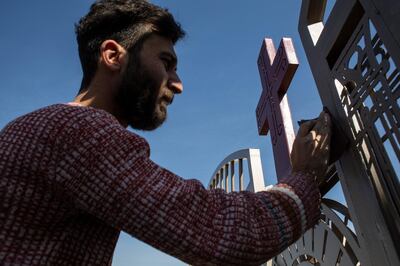
It was here, in October 2010, that ISIS terrorists wearing suicide vests burst through the doors during evening mass, killing 44 worshippers and two priests.
On March 7, the Pope travels by helicopter to Erbil, then on to Mosul, a front-line city shattered in the war with ISIS, who destroyed sites holy to both Islam and Christianity, but where he will also see reconstruction, including the UAE-funded project to rebuild Al Nuri mosque and its famous leaning minaret, Al Hadba.
Another short helicopter ride will bring him to Qaraqosh, home to the world’s largest Syriac Catholic community, whose liturgies are conducted in a dialect of Aramaic, the language of Jesus.
In 2014, the entire community of 50,000 fled ISIS, but more than half have since returned, with the Pope praying at the Church of the Immaculate Conception, still under restoration after being set ablaze during the occupation.
Baghdad prepares to welcome the Pope
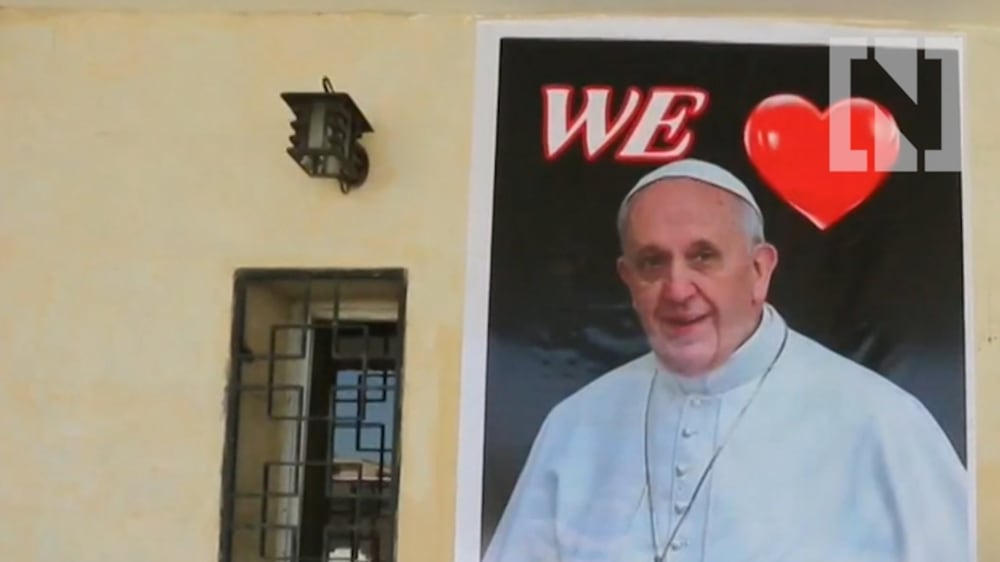
From here, Pope Francis flies back to Erbil and a mass at the Franso Hariri Stadium, whose 30,000 capacity has been slashed to a third to ensure social distancing and with every guest carefully vetted.
Finally, on March 8, the Pope leaves Baghdad for Rome. The next steps in his mission to promote peace and understanding between all faiths may well be determined by what has been achieved in Iraq.
On a visit to Rome last month, Father Karam Qasha, a priest from a village outside Mosul, explained: “For us to welcome the Pope is to welcome someone whose presence will heal many wounds inside the hearts of our faithful.”
But also, he added, “This visit won’t be just for Iraq, but all of the Middle East.”
